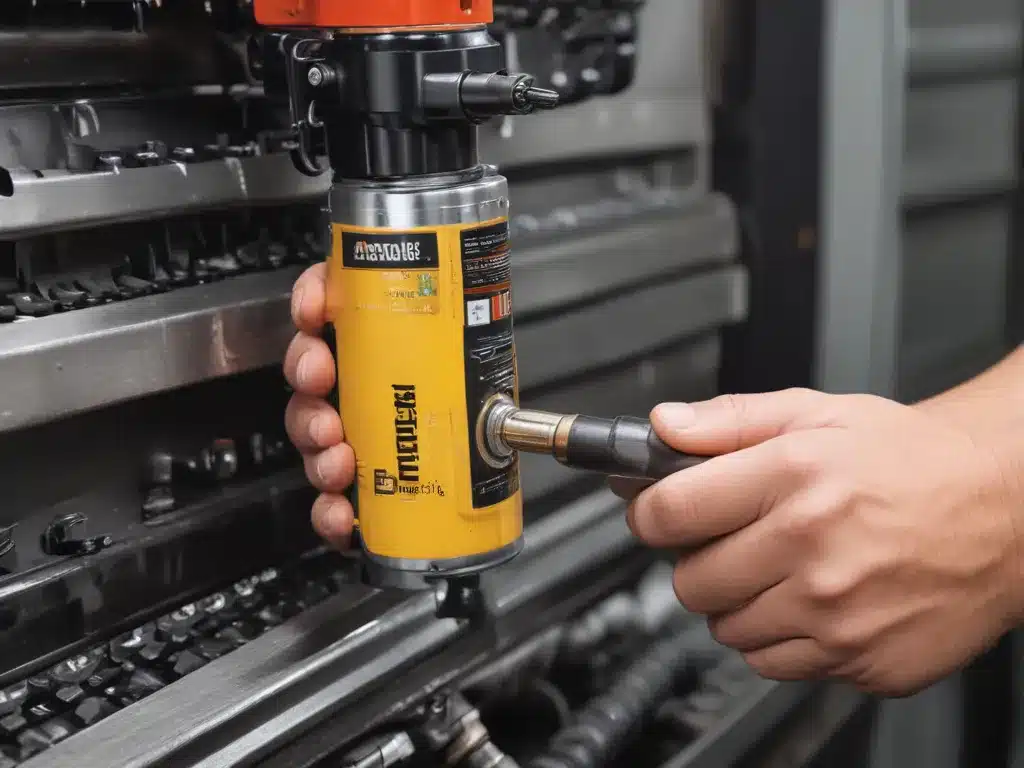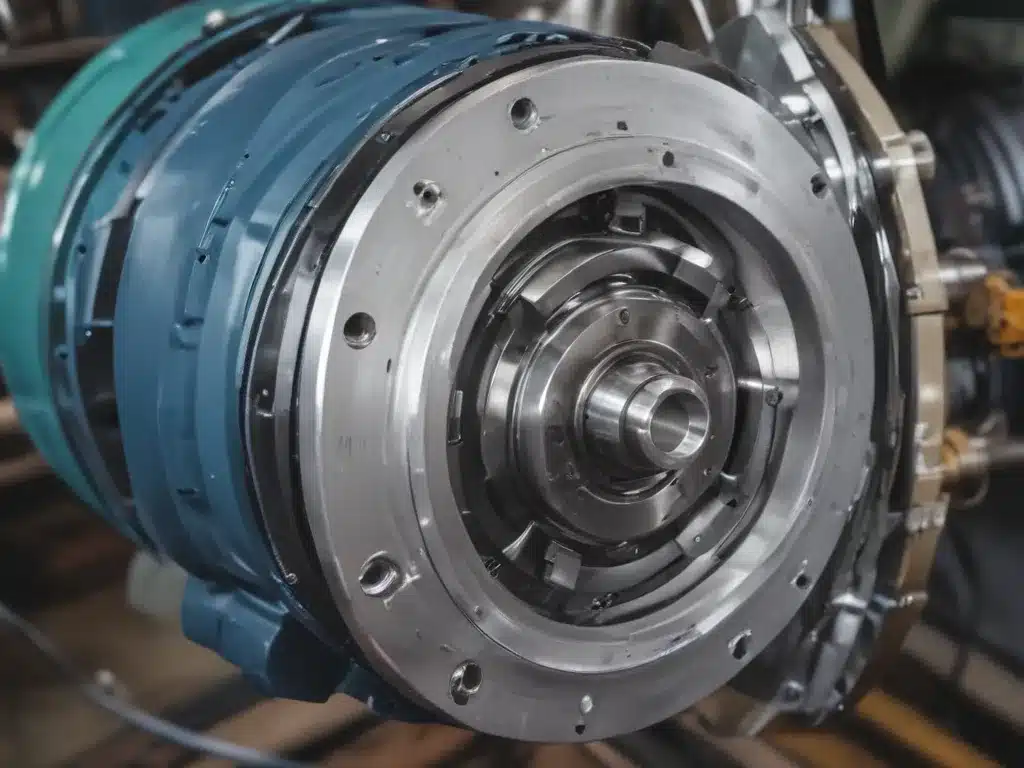The Roar of the Chainsaw: Gas vs. Electric
As a self-proclaimed power tool enthusiast, I’ve always had a soft spot for the mighty chainsaw. The way they purr to life, the satisfying bite of the chain chewing through wood – it’s an experience that just can’t be replicated. But when it comes to choosing between a gas-powered chainsaw and an electric one, the decision isn’t always cut and dry (pun intended).
In the world of chainsaws, I’ve found that gas models tend to command a certain rugged allure. They possess an undeniable sense of raw power, with their beefy engines and the primal roar they emit when revved up. These chainsaws are the workhorses of the tool shed, capable of tackling even the toughest, gnarliest logs with ease.
On the flip side, electric chainsaws have been making some serious strides in recent years. Their lightweight, low-maintenance design and whisper-quiet operation have won over a growing number of homeowners and professionals alike. And with advancements in battery technology, these silent saws are quickly closing the performance gap with their gas-guzzling counterparts.
Unleashing the Power: Gas Chainsaw Prowess
When it comes to pure brute force, gas chainsaws reign supreme. Their engine-driven power allows them to slice through even the most stubborn tree trunks and branches with ease. I once had a particularly gnarly oak tree that needed to be taken down, and my trusty gas chainsaw made short work of it. The machine’s high torque and powerful cutting capabilities ensured that each pass of the chain cut through the wood like a hot knife through butter.
Another key advantage of gas chainsaws is their ability to operate in remote or off-grid locations. Since they don’t rely on an electrical outlet, I can take them deep into the woods or up to the top of a mountain without worrying about running out of juice. This mobility and freedom of movement is a game-changer for anyone tackling large-scale projects or working in areas with limited access to power sources.
However, this untethered power does come with some trade-offs. Gas chainsaws tend to be heavier and louder than their electric counterparts, which can make them more physically demanding to use over extended periods. Additionally, their reliance on gasoline and oil means more maintenance and a larger carbon footprint.
The Silent Strength of Electric Chainsaws
While gas chainsaws may have the edge in raw power, electric models are quickly catching up in terms of performance and capability. Modern battery-powered chainsaws pack surprisingly potent motors that can handle a wide range of cutting tasks, from pruning branches to felling small to medium-sized trees.
One of the biggest selling points of electric chainsaws, in my opinion, is their whisper-quiet operation. Compared to the deafening roar of a gas-powered machine, these silent saws allow you to work without drowning out your own thoughts or scaring the local wildlife. This makes them a much more pleasant and eco-friendly choice for urban or suburban settings, where noise pollution is a growing concern.
Another major advantage of electric chainsaws is their low-maintenance design. Without the need to mix fuel, change oil, or perform other routine engine servicing, these tools are a breeze to own and operate. I can simply charge up the battery, grab the saw, and get to work – no fussy pull-starts or engine tuning required.
Weighing the Pros and Cons
When it comes to choosing between a gas chainsaw and an electric one, there’s no universal “right” answer. It really depends on your specific needs, preferences, and the type of work you’ll be doing.
| Gas Chainsaws | Electric Chainsaws |
|---|---|
| Pros: – Significantly more powerful and torque-y – Can operate in remote, off-grid locations – Ideal for large-scale, heavy-duty projects |
Pros: – Quieter operation – Lower maintenance – Lighter and more maneuverable |
| Cons: – Heavier and more physically demanding – Louder and produce more emissions – Require regular engine maintenance |
Cons: – Limited runtime on battery power – Generally less powerful than gas models – Cord/battery constraints limit mobility |
Ultimately, I think both gas and electric chainsaws have their place in the power tool arsenal. Gas models shine for large-scale jobs and remote work, while electric saws excel in urban/suburban settings and for lighter-duty tasks. The best choice really comes down to carefully weighing your specific needs and priorities.
Making the Right Choice for Your Needs
So, how do you decide which type of chainsaw is right for you? Here are a few key questions to consider:
- What kind of projects will you be using the chainsaw for? Larger, tougher jobs may call for the raw power of a gas model, while an electric saw could be a better fit for smaller-scale pruning and trimming.
- How important is mobility and portability? If you need to work in remote areas without access to power outlets, a gas chainsaw’s freedom of movement may be a game-changer.
- Do noise and emissions matter to you? If you value a quieter, more eco-friendly operation, an electric saw’s silent running could be a major selling point.
- How much maintenance are you willing to do? Gas chainsaws require more routine servicing, while electric models are generally lower-maintenance.
By carefully considering these factors, you can make an informed decision that aligns with your specific needs and preferences. And if you’re still unsure, don’t hesitate to reach out to the power tool pros at powertoolspros.net – they’d be happy to provide personalized guidance to help you find the perfect chainsaw for the job.
Conclusion: Choosing the Chainsaw that Fits Your Lifestyle
At the end of the day, the choice between a gas chainsaw and an electric one ultimately comes down to your own unique needs and priorities. Both types of saws have their own distinct advantages and trade-offs, and the “best” option will depend on the specific tasks you have in mind.
As someone who’s used both gas and electric chainsaws extensively, I can say that each has its place in my tool shed. When I need to tackle a massive tree-removal project or work in remote areas, my trusty gas-powered model is always up to the challenge. But for lighter-duty yard work and pruning around the house, the quiet efficiency and low-maintenance design of an electric chainsaw can’t be beaten.
Ultimately, the decision comes down to carefully weighing your needs, preferences, and budget. Take the time to honestly assess your cutting requirements, and don’t be afraid to reach out to the experts for guidance. With the right chainsaw in your hands, you’ll be able to tackle any woodworking task with confidence and ease.
So, what’s it going to be – the primal roar of a gas-powered beast, or the silent strength of an electric saw? The choice is yours, my friends. Happy cutting!


























